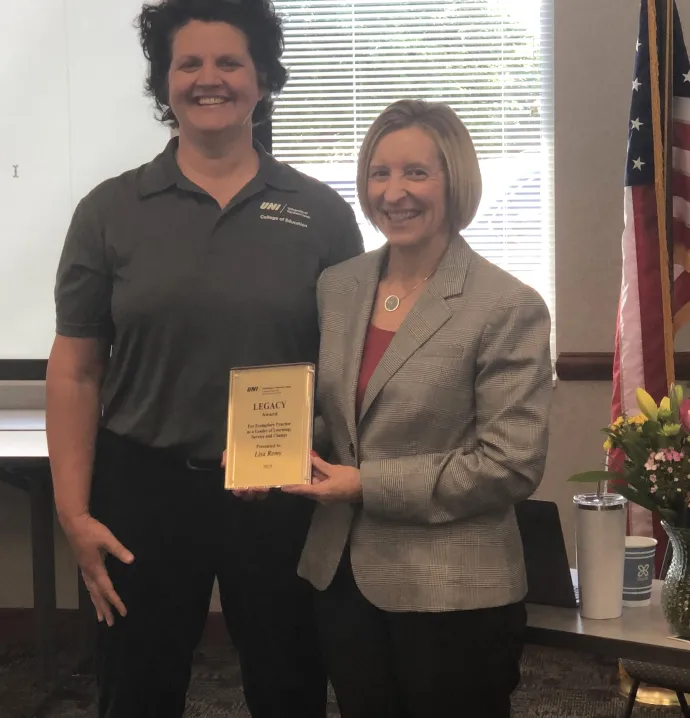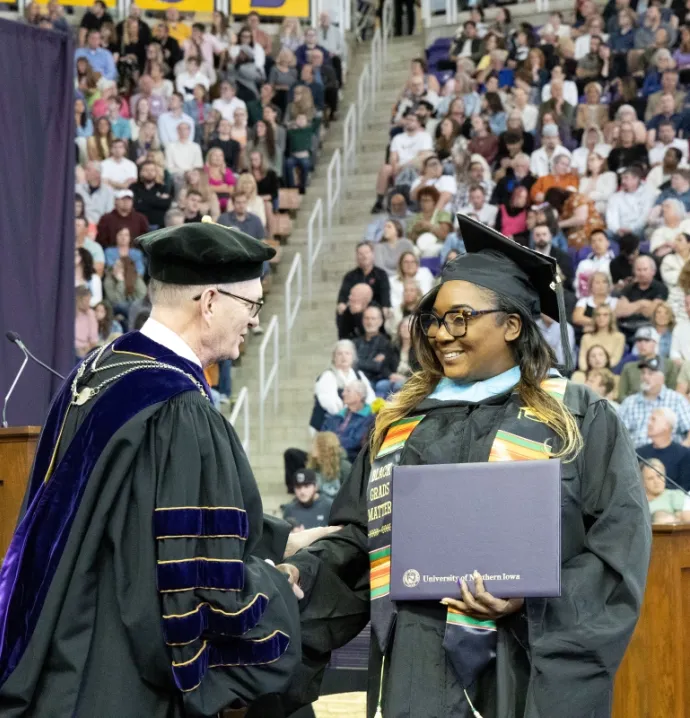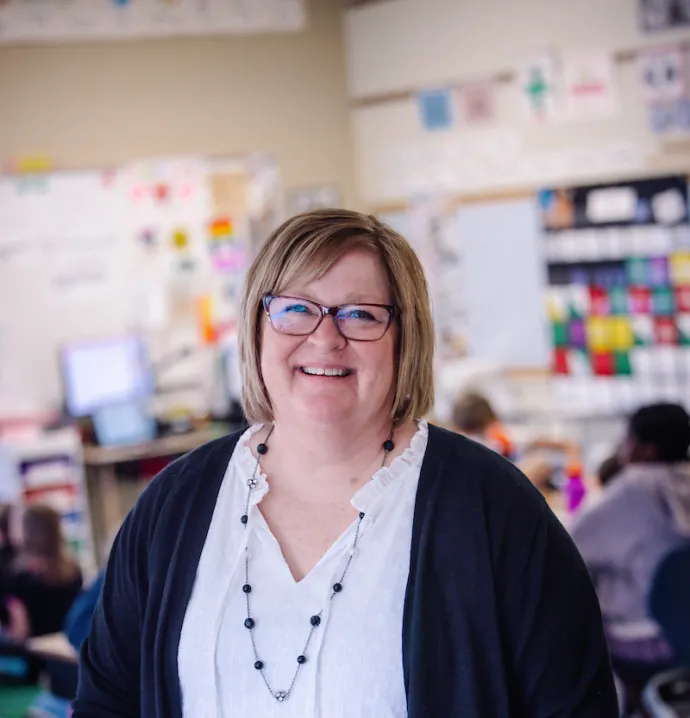Landmark distance education program celebrates 25th anniversary
Landmark distance education program celebrates 25th anniversary
Just over 25 years ago, the Des Moines Area Community College reached out to the University of Northern Iowa with a problem: Rural areas of Western Iowa were having trouble attracting quality teaching candidates.
The solution to this issue is still flourishing today - the 2+2 Elementary Education Program, now the longest-running partnership between a university and community college in the state. The program is celebrating its 25th anniversary with the largest student class in its history.
“Community leaders recognized the long-term value of creating a pathway for placebound and non-traditional students in the region to complete a teaching degree -- and UNI was their first choice,” said Kent Johnson, dean of UNI’s Division of Continuing Education and Special Programs.
The 2+2 program offers students who cannot relocate to Cedar Falls the ability to take two years of classes at DMACC followed by two years of upper-level classes delivered by UNI through a combination of in-person, online and hybrid approaches.
The program, which has been available at DMACC’s Carroll, Ankeny and Boone campuses, will have graduated 307 students by May 2021. Many of these graduates have gone on to teach in rural districts that face an aging teacher population and social and financial challenges to attracting qualified teachers.
“We’re providing rural districts that can have trouble attracting qualified candidates with teachers who are trained by the best teaching school in the state,” said Marc Renning, the program coordinator and an instructor with the College of Education.
Graduates raved about the accessibility and educational quality of the program.
“The UNI/DMACC 2+2 program is incredibly convenient, affordable, and understanding of non-traditional students, without watering down the content and importance of learning,” said 2017 graduate Caitlin Bailey, who landed a position in the Waterloo School District upon graduation. “Professors were very flexible and went the extra mile to accommodate our group.”
Fellow 2017 graduate Addison McCombs, is currently an elementary teacher at Ray Elementary in Hutto, Texas, said the program allowed her to continue working full-time while completing her degree.
“I am blessed that UNI had the 2+2 option,” McCombs said. “The instructors were amazing and helpful, and I feel like I got the ‘college’ experience without living in a dorm room.”
Plans for the program were outlined in early 1993 after DMACC approached UNI with the results of a survey showing a pending teacher shortage in rural schools of West Central Iowa. In 1994, UNI received a three-year, $315,000 federal grant to develop a model 2+2 program.
The first courses from the UNI sequence were offered beginning in January of 1995. In the early years of the program, UNI received a budget line from the legislature to offset the costs, but as the program has thrived, it has been fully integrated into the budget of the university as a whole and currently operates on a self-supporting basis.
The success and duration of the program has contributed to the creation of an additional partnership with DMACC, UNI@DMACC, in which UNI staff will be located at DMACC's urban campus to provide support for several online degree completion programs designed for adult learners: the Bachelor or Liberal Studies, Bachelor of Applied Studies (BAS) in Managing Business and Organizations, and BAS in Criminology.
And after 25 years, the program is still going strong.
“We have our largest 2+2 class in our history this spring, and we will continue to provide access to high-quality education to students who might otherwise not be able to attend UNI,” Johnson said. “The UNI faculty who teach in the program and the staff who support the students deserve tremendous credit. With the strong relationship with DMACC and great support systems we have in place, we are positioned very well for another 25 years of providing qualified teachers to the schools that need them.”




